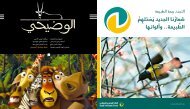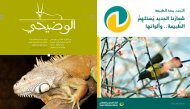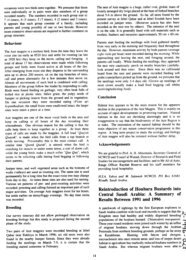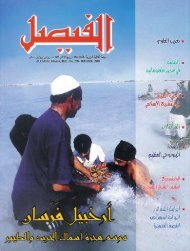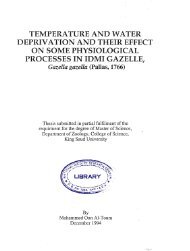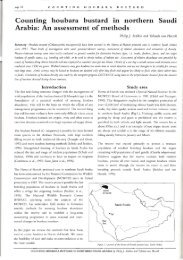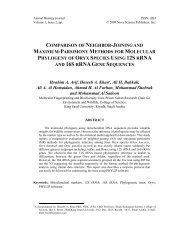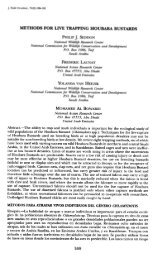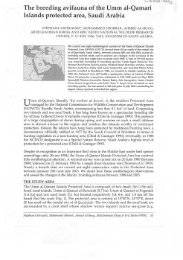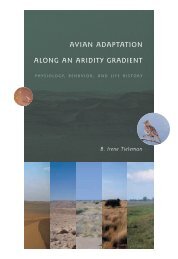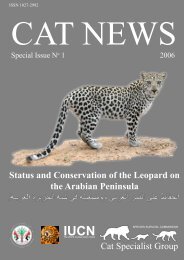CONSERVATION OF ARABIAN GAZELLES - Nwrc.gov.sa
CONSERVATION OF ARABIAN GAZELLES - Nwrc.gov.sa
CONSERVATION OF ARABIAN GAZELLES - Nwrc.gov.sa
You also want an ePaper? Increase the reach of your titles
YUMPU automatically turns print PDFs into web optimized ePapers that Google loves.
The Global Antelope Survey and Action Plans are not a one-off exercise. Human<br />
development and natural evolution are dynamic processes, with change appearing all the time. The<br />
ASG regular publication "Gnusletter" includes updates on antelope information from various<br />
countries and workers, which in time will need to be incorporated into the Survey and Action Plans.<br />
At present the whole exercise is run and maintained by volunteers - two in particular - co-ordinator<br />
and compiler Rod East and the Chairman Dick Estes - supported by an army of volunteer<br />
correspondents in the field, including many of the people at the present Arabian Gazelle Workshop.<br />
It is evident that eventually professional full-time staff will be required to maintain the impetus,<br />
integrate new data with the old and update plans.<br />
Action plans<br />
Three parts have now been completed, Part 1 in 1988 (East and North-East Africa), Part 2 in 1989<br />
(South and South-Central Africa), and Part 3 in 1990 (West and Central Africa). These cover the<br />
sub-Saharan region, leaving North Africa and the countries of Asia with Antelopes to be covered in<br />
Part 4 (North Africa and Asia), currently under preparation. Part 4 will be appropriate to the present<br />
deliberations, and will cover a vast area, but an area relatively poor in antelope compared with the<br />
areas of Africa covered in the first three parts, which probably contain 90% of all antelope species<br />
and populations (Estes, pers. comm.).<br />
Priorities and strategy for antelope conservation action were established from the survey<br />
results, including the preparation of Regional Action Plans in the four regions covered. The<br />
responsibility for more specific action planning is considered to lie with the wildlife conservation<br />
authorities of the countries themselves, making use of the information and appropriate action plans in<br />
the Survey and Action Plans. While the Antelope Specialist Group does not have the resources to<br />
ensure that this happens, the onus is on the world conservation community to enable the integration<br />
and implementation of these group-specific Action Plans within anyone country or region. If such<br />
integration and implementation is not carried out by the relevant national (e.g. NCWCD) and<br />
international conservation organizations, then the effort expended in collating and compiling the<br />
Action Plans will have been wasted, except as a historical documentation exercise. The sse is<br />
currently engaged in an exercise to determine how best such integration of Specialist Groups' Action<br />
Plans can be carried out on a regional or country basis.<br />
It is evident (East, 1988) that the long term survival of antelopes depends upon:<br />
• The adequate protection and management of natural habitat in conservation areas (e.g.<br />
National Parks);<br />
• The development of landuse disciplines that enable the co-existence of human and wildlife<br />
populations to the greatest degree possible;<br />
• Greater public awareness of the need for and values of wildlife conservation, including<br />
utilization schemes.<br />
The Regional Action Plans in each volume concentrate on specific areas and problems of<br />
antelope conservation within the region and countries covered, mainly concentrating on countryspecific<br />
aspects and protected areas. In addition some general activities are suggested:<br />
• Political and <strong>gov</strong>ernment action requires stimulation, including top-level approaches by the<br />
Director-General of the IUCN as opportunities present themselves;<br />
130




